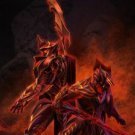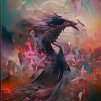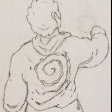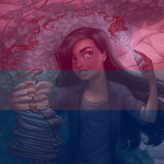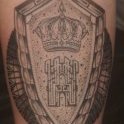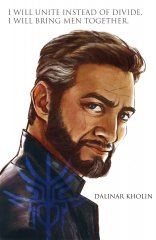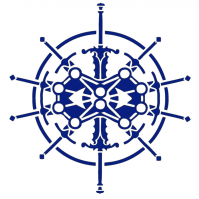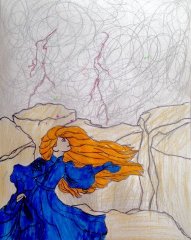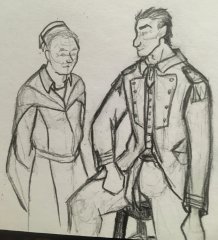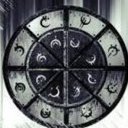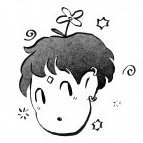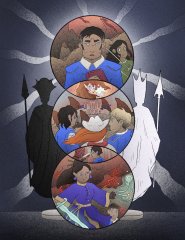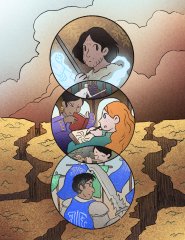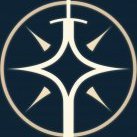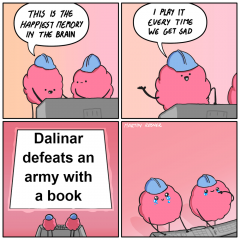Search the Community
Showing results for tags 'dalinar'.
-
I've been thinking about how Szeth's oaths may play out in SA5; and some possible ways his narratives may come together, especially given that Szeth will be the flashback character in SA5. Here's our oaths to start as a reminder: I'm interested to see if Dalinar looses the contest of champions then how does Szeth's future play out in light of his Third Ideal? Does he become an agent of Odium by proxy of Dalinar's will? Does he break his oath to follow Dalinar consequently killing his (mysterious) Highspren? Does he say his Fifth Ideal, circumventing his Third Ideal? Or does Dalinar have the power of will to release Szeth from his Third Ideal without breaking it? What ever happens I think we will see a conflict for Szeth brought to light as we learn his backstory, particularly with that caveat in his Fourth Ideal: "So long as Dalinar Kholin agrees"... and it's going to be GOOD READING! Bonus theory: Imagine if Szeth-Nightblood are tricked/convinced into being (T)Odium's champion...? (T)Odium guy has so much emotional leverage over Szeth already, I can see him giving it a go... especially if Taravagian uses the advantage of no one knowing of his ascension to his advantage. Szeth has his Fifth Ideal as a nice little get out of my Third Ideal card to draw too! By the Almighties Tenth Name that would be a terrifying scenario for Dalinar, et., al! Nice knowing you team!
-
Did Dalinar still have his memory the his brother died?
Cyprian Wiley posted a question in Cosmere Q&A
Hi, I am not sure about the timeline and I was not able to find it out myself. But did Dalinar still have his memory about his wife when his brother died? I think, no, as far as I understand it, he "got rid of it" before that, but I am not sure. -
I'm not super good at making and explaining my theories, but here goes... I think that in the latter half of the series, Dalinar will become the Shard Unity (Honor, Odium and Cultivation combined) (or War (Honor and Cultivation), if Unity isn't possible). Dalinar has big ideals about unifying everything. I think that during the latter half of the series, the Stormfather will somehow become Honor, Dalinar will continue to be Bonded to the Stormfather, but in a different way--he's the Vessel of Honor. He's going to kill Taravangian and beat Odium, but I don't think that it will end there. Instead of attempting to Shatter Odium, he will try to take over the power, becoming the Shard of War. After that, he's going to continue to try to unify Roshar by taking over Cultivation's powers, becoming Unity. He won't stop there, and attempt to Unify the whole Cosmere (with Cephandrius' help, of course). Eventually, he will become the new Adonalsium unless the rest of the Cosmere has anything to say about it. I know I'm not providing evidence, but it just makes sense in my head and it's kind of hard to explain it. If anyone wants to improve and shoot down this theory, feel free (basically, feedback is very wanted, be it good or bad). If anyone can find more evidence, please tell me so that I can put that in. If anyone wants to just rewrite it but better, that's awesome. Thanks!
- 16 replies
-
3
-
- shards
- stormlight archive
-
(and 3 more)
Tagged with:
-
This was an assignment for my creative writing class. What do you think of it? I tried to make it so that it could be canon. Dalinar’s boots clinked against the cobbled stone floor of the recently captured keep. He drew in a deep breath from his nose, exalting in the metallic odor of spilled blood. They had put up a good fight, but they could not stand against him. No one could stand against him. A small, wiry man in white clothes scurried up to him. “My lord, do you require assistance?” he asked, fidgeting his hands. He looked at the gash on Dalinar’s muscular bicep. Dalinar shoved his way past the surgeon and exited the large doorway out of the keep. He looked down on all the corpses laid down at the feet of the drawbridge. Dalinar snorted with contempt, kicking them out of his way and into the dirty moat water. Off to the side he could see the surgeon returning to the medical tents, where wounded soldiers cried out in pain. He tore a strip of fabric from his shirt and tied it roughly around the bleeding wound. He made his way through the former battlefield to the command tent. The massive blue tent fell silent as a powerful figure filled the opening. A stately man with a crown stood up. “Ah, Dalinar, we were just discussing your recent success! Well done!” Gavilar praised. Dalinar grunted and sat down next to the various diplomats and tacticians, several of whom visibly recoiled. He grabbed a cup of wine and looked at it in distaste. Yellow. Not nearly strong enough. The wooden chair creaked under him, and the tent filled with the stench of his wounded arm, but Gavilar, however, was unfazed. “What with our success,” with this he motioned to Dalinar, who was taking a long drink, “I am feeling somewhat bold. I believe that the next target that we need to go to is in fact Dumadari.” Dalinar’s drink spewed out of his mouth in utter shock. He laughed. “That’s more than somewhat bold!” he boomed. “Does that mean that you do not recommend that course of action?” Gavilar questioned. “Ha! Foolhardy? Yes. But,” he lammed a dagger into the table to punctuate his words,” it sounds fun enough.” Gavilar simply smiled. ------------------------------------------------------------------------------------------------------------- Dalinar grinned like a madman, swinging his sword in broad, sweeping strokes. He was so consumed in it all that he barely noticed the various cuts and bruises that he had accrued throughout the fight. He was enraptured in this feeling, this euphoria, this… thrill. The thrill of battle, the thing that drove him on. His eyes darted wildly, and his clenched teeth held back peals of vicious laughter. Red mist clouded the edges of his vision as he cut down ranks of foot soldiers. They were lesser beings than him, everyone was. Out here, on the battlefield, he was like a god. Every crunch, every satisfying swing, all of it. He was unstoppable. He spotted a man riding a gleaming white horse in Shardplate. Dalinar grinned. He had found his target. He started swinging his way towards the man, called Narat. Narat was the leader of the resistance here. If he could kill him, then the army would be like an axehound without a head. The ranks of soldiers surrounding the man were no problem. Dalinar cut through the ranks of basic soldiers until he reached Narat’s honor guard. Their gold and white uniforms made them stand out in the battlefield His glory was put to an end when his sword deflected off something. He growled and looked into the eyes of the man who had resisted him. Brown eyes, in a uniform of white and gold. He was a peasant, not even worthy to shine Dalinar’s gore encrusted shoes. Dalinar laughed at how desperate Narat was that he would let darkeyes serve in his honor guard. Dalinar’s laughing was stopped when the man’s thin blade stabbed into his elbow through a chink in his armor. He roared and swung his sword towards the peasant who had dared to stop him, to resist him, to end his rush of power. He was even more surprised when his sword failed to cut the man down. The peasant had dodged. Dalinar looked at the man and saw that he was smiling. Dalinar grinned back. Finally, a challenge. Dalinar surged forward with a mighty roar, bringing his sword in a brutal cut towards his opponent. The man ducked and jumped back with an eerie grace about him. He jumped back towards Dalinar and brought his thin blade into an overhead swing. Dalinar deflected it off his own weapon and kicked at the man. The darkeyes dropped his weapon and caught Dalinar’s leg in both hands. He twisted it and let go, making Dalinar fall to the ground. The peasant retrieved his sword and stabbed down at the prone Dalinar. Dalinar grabbed the sword that he had dropped when he fell and deflected the strangely thin sword away. He jumped to his feet and brought his sword up. The guard was more skilled than he had originally thought. No matter. He stepped forward and brought his massive sword down upon the darkeyes’ head with all the strength he could muster while red clouded the edges of his vision. He found it stopped against the edge of the thin blade of the man. With a mighty heave, the darkeyes shoved back against Dalinar, knocking him back. The man was strong. The peasant lunged forward, his sword driving towards Dalinar’s heart. Dalinar shifted his right foot backwards and twisted out of the way. How is he so strong? The rapier screeched off his armor. Dalinar brought his broadsword before him and stabbed back, but the man darted out of the way. The darkeyes swung his weapon towards Dalinar’s neck, where there was some exposed skin. Dalinar jumped backwards as the Thrill pumped through his veins. He roared and barreled into the man who deftly darted aside. The man delivered a kick into Dalinar’s side, causing him to stumble. Dalinar just barely brought his sword up to deflect the sword heading for his heart. He jumped back to gather his thoughts. The Thrill no longer sustained him. He was beginning to feel the pain of his wounds. He needed to end this now. Dalinar launched into an attack. He stepped forward and drove a swing of his massive sword into the peasant’s side. The man simultaneously stabbed forwards. The man grunted as his armor caved in under the strike, and Dalinar grunted as the sword slipped in between his lower left ribs. Dalinar, glimpsing victory through the pain, drove another strike into the man’s side. The darkeyes collapsed to the ground. Dalinar stood over him, holding his side. He walked away holding his side, motioning for his soldiers to finish the man off. He had not made 5 steps before he felt a piercing pain in his back. Turning around, he saw the man looking at him before standing up. Dalinar ripped the knife out of the back of his armor, but his vision was already clouding. He looked back at the grinning man. Dalinar fell to the ground unconscious, but not before he noticed that the man’s eyes were bright red. ------------------------------------------------------------------------------------------------------------- Dalinar blearily blinked awake. Fuzzy shapes were standing over him. His side burned where he had received the sword wound, but what hurt most was his back where the knife was. He heard the figures talking about something, although he could only hear some of what they were saying through his agony. “. . . the knife . . . poison . . . yes. . . deadly . . . surgery . . . I know” Suddenly his pain spiked. He bellowed and fell back into the comforting dark of nothingness. ------------------------------------------------------------------------------------------------------------- Dalinar fell, fell, deeper into the nothing. He heard voices shouting, but they were muffled and quiet. He just wanted to fall asleep. It was so comforting. He turned away from the voices. Dalinar turned back and realized what was happening. He grunted and tried to wake himself up, but to no avail. It was hopeless. He should just return, go back. He closed his eyes again. Yes, you made the right choice. Come to me. I will take everything. You will never have to feel again. The voice echoed in his mind. Dalinar turned to the voice in the ever-growing darkness of his mind. He could clearly see a kindly old man holding out his arms, dressed in a golden robe. He uncertainly walked towards the old man. With each step he took the darkness grew more complete, more final. That was when he heard a voice that he knew extremely well. “Fight, brother.” Dalinar looked back to the kindly old man. The man’s eyes flashed red, and in that single flash he saw everything. He saw men fighting and screaming on the battlefield. He saw people weeping over the dead body of a mother. He saw himself, Dalinar, unfeeling and uncaring. He saw portions of the future- a green dragon, a man with blue eyes and white hair, and a pattern that seemed to be endlessly curling into itself, its lines beautiful. He stumbled back. “Who are you?” The man did not answer. He scowled, his eyes turning blood red. Dalinar reached for his sword and found that he had none. He backed off. That was when he felt the red creeping in on his vision. He grinned. He charged the man. His fingers closed around a red sword of mist, and he chopped at the old man. The man disappeared. Dalinar looked around and found himself surrounded by inky black creatures. He snorted. This was everything? Dalinar chopped and weaved for what seemed like eternity. His accumulated cuts were nothing as he was being fueled by the Thrill. He took down monster after monster after monster. They didn’t bleed, but instead deflated as something fled out of their body. Finally, he brought down the last one. He looked around to see if there were any more. There wasn’t. He strode to the edge of the darkness and drove his misty sword through. Bright light poured through the rend and he was blinded. ------------------------------------------------------------------------------------------------------------- He woke to the sound of cheering. His memories of what had happened were already slipping away. Dalinar looked around to see soldiers surrounding him. There was Gavilar, his brother. They clasped hands. Dalinar winced at the pain in his side. “Welcome back, brother. Welcome back.”
- 1 reply
-
2
-
- fan fiction
- dalinar
-
(and 4 more)
Tagged with:
-
Adolin killed Sadeas, a Highprince, and then even confessed to his father about it. Why hasn't Dalinar done anything about it? Isn't that kind of crime punishable by exile at the least, execution at worst, even if the one committing the crime was a highprince's son? I love Adolin's character, but it feels that this hasn't really been resolved yet. It feels...weird, and frankly a little messed up in my opinion that all the characters who know of this just kind of ignore it. Am I missing something?
-
I usually have an image of each character in my mind, but every now and then, a character comes along that I just can't form a coherent image of, or at least, a coherent image of that matches the descriptions in the books. Dalinar Kholin I have a little trouble imagining. I have a worse time imagining Jonathan Phaedrus, aka Prof, from Brandon Sanderson's Reckoners series. Can y'all share fanart of Dalinar or Prof that fits with the books' description and you think matches the personality of the character? Or could you share photos of actors or other people who you think resemble one of those characters? I would appreciate it.
- 9 replies
-
1
-
- dalinar
- dalinar kholin
-
(and 3 more)
Tagged with:
-
When I was looking at some recent threads theorizing about Unity (basically the only time we ever hear it referenced is when Dalinar says "I am Unity!" at the climax of OB and Rayse says "we killed you!), I realized that I had my own theory - and that it also solved the problem of how Adonalsium was shattered. Before I continue, I would like to state that this isn't just a repeat of the things I said in the "death of Unity" thread - I crafted my thoughts into a full-fledged theory this time. 1. What is Unity? Let's get straight to the point - I believe that Unity is a lot like a Shard, but not - it's more like a binding agent. Like an egg used in baking. It isn't there to taste good, it's there to hold the things that taste good together. By this same logic, Unity is there to hold the Shards of Adonalsium together. I'll get to how it does this later, but the implications for this are pretty staggering. Firstly, it would explain how Adonalsium was shattered - Unity was somehow removed from the equation (e.g. its holder was killed), making Adonalsium's Investiture split into sixteen pieces. There are a couple different options for why it couldn't hold itself together. It could've been in 16 different pieces at the start, or (and I think this is the more interesting option) it could've been too big to hold itself together. Maybe Investiture works in weird ways on a large scale, and Adonalsium is just so Invested that it splits into sixteen different pieces. (I don't actually have any supporting evidence for this, but it sounds plausible). 2. How does it hold things together? I believe that Dalinar's "Bondsmith unchained" powers are, in reality, the part of Unity that he holds. I say "part" because I believe all three Bondsmiths hold a part of Unity. This feels like it could have some prevalence in KoW or back-half Stormlight, or in Era 4, where the reformation of Adonalsium seems like it'll be at least a small plot point. I think this because Dalinar's main power is Connection manipulation, and that's exactly what you'd need to hold Adonalsium together. This could also apply to Ishar's destruction of Ashyn - maybe he removed the Connection between the planet and its magnetic field, or its orbit, or something big. Backing up a little further, I think something from his experimentation allowed him to gain access to the remnants of Unity and somehow piece them back together - again, that's something we'll probably see when the time comes for Herald flashbacks. yeah that's basically it This is all just wiiiiiild speculation. But I think it makes at least a modicum of sense. Let me know your thoughts!
- 6 replies
-
1
-
- unity
- binding agent
-
(and 3 more)
Tagged with:
-
Hi All, Doing a re-read of Oathbringer and came across a curious quote, which I had a look for but I don't think has been brought up before. I know there are many theories about the Unmade, and I think this might give us another bit of info that can be worked in to theories. In a Dalinar look-back chapter Brandon seems to make it very obvious that when under the influence of Nergaoul, and amidst completely loosing himself within battle against Kalanor's forces, he attuned to one of the rhythms of Roshar. Someone might know more than me, but as far as I am aware, I can't re-call any human in the books attuning to a rhythm, and acknowledging it, if even in an unknowing/unconscious way. We have comments from Rlain about how Rock and others in Bridge Four seem to almost hear a rhythm a times - but this is seemingly unconscious on their part, and nearly nearly not the same as a viewpoint character directly referencing it. Here is the quote: I think there are a few things we can assume from this: 1. Like I said, Dalinar has heard and attuned to a rhythm of Roshar 2. Giving he is directly under Nergaoul's influence, we can probably assume that this ability to attune to a rhythm has a link to Nergaoul's characteristics, abilities, and identity. This gives us a potentially interesting tidbit about Nergaoul, and maybe the rest of the unmade, firstly it perhaps indicates a direct Connection (and I use this in a big C way purposefully) between them and Roshar. Secondly, they are able to connect humans with Roshar while under their influence. As mentioned above, I am not sure exactly how useful or insightful this is - cleverer people than me might be able to see some relevance to this within the theories. But I hadn't seen this mentioned before, so thought I would point it out. Have at it people! Let me know what you think.
-
Now that Navani and Dalinar are bonded to the Sibling and the Stormfather respectively, are they the most powerful couple ever to live on Roshar? Unless two of the Heralds were married to each other or two previous bondsmiths, I think they probably are. Also, I find it fitting that two bondsmiths are bonded to each other.
- 13 replies
-
Now that Navani and Dalinar are bonded to the Sibling and the Stormfather respectively, are they the most powerful couple ever to live on Roshar? Unless two of the Heralds were married to each other or two previous bondsmiths, I think they probably are. Also, I find it fitting that two bondsmiths are bonded to each other.
-
STORMLIGHT ARCHIVE SPOILERS so we know that era two is a few years ahead of the current stormlight archive timeline, so I’m thinking, dalinar loses the contest of champions and odium turns him into this spacefaring warlord who will conquer stuff for odium,so what if odium has sent dalinar to scadrial to conquer it , kill harmony etc and also we see that red mist sazed shows wax, and I’m thinking it looks eerily similar to the red mist seen in the thrill in oathbringer (I think it’s oathbringer at least) which is odiums investiture so what if dalinar is trell?(this is extremely far fetched Ik)
-
When I read RoW the first time, the biggest thing that stuck out to me was that Sanderson's character work on Taravangian was masterful. Halfway through the book, Sanderson had set up a single choice for Taravangian, a choice that would define his character, a choice where he could have legitimately become the redeemed hero of the entire series but instead became its darkest villain. Taravangian, in contrast to Dalinar, has a fatal flaw, and it's more than just "end justifies the means". It was so subtle though, and I haven't heard anyone else comment on it, so I wanted to pull it out here: The choice I'm talking about is this one here, from Taravangian's final interlude: It's the choice to tell Dalinar. At this point, Taravangian realized that he was wrong. Humanity isn't absolutely doomed. There is a way to defeat Odium, and he keeps thinking about telling Dalinar...but he never does, always finding a different reason not to. They could have finished it together, but in the end, he resolves to do it himself, just as he had before. Let's observe the setup. Throughout every Taravangian scene is pulsing this question: "What are Taravangian's true motives?" From his 1st inerlude: From his conversations with Dalinar: You can see it here. This question. Was Taravangian a tragic hero? A man with the noblest of intentions who had done what he thought was best with the wrong information? Or has he been subtly lying even to himself, has he pushed this narrative so deeply into his subconscious because he wanted to be the hero, the one who saved everyone? Is it his self-sacrifice or self-ego that drives him? His whole conversation with Dalinar danced around this, and at the end you get a glimpse at what could have been the alternate storyline for the Stormlight Archives. Taravangian, after learning his Diagram was mistaken, lets go of his ego and surrenders his role as the hero of the story to Dalinar. He tells Dalinar of Odium's weakness to Nightblood, and Dalinar defeats Odium once and for all. Taravangian's reputation is tarnished forever by his earlier betrayal, but humanity is saved. He lives on, hated by humanity, but he earns the respect of one man, ending the series as Dalinar's closest friend, working together for the good of humanity. In the interludes, we see Taravangian himself wrestling with it. This is his conversation with Renarin: I remember thinking at this point that we were in for a Taravangian redemption arc, and I was all here for it, but Sanderson bamboozled me yet again. I believe the light flickering in the darkness was Taravangian's wavering decision to confide in Dalinar, and the deep darkness of him rejecting that is our present reality of him having become Odium. His refusal to take Renarin's hand is symbolic of his refusal to accept help from Dalinar or anyone else. He's battling against admitting his own deep flaws. And his most fatal flaw pokes its head out as he goes back and forth about going to Dalinar. Check out this sequence of moments where Taravangian thinks about talking to Dalinar. The truth that his actions reveal is in the end he is too proud. It's his fatal flaw. He can't admit he was wrong. He can't share the spotlight. He can't play second fiddle. Everything is building up for him to turn around and make the right choice in his 11th hour, but he can't do it. It's the inverse of Dalinar at the end of Oathbringer. Come face to face with the worst of himself, Dalinar took the blow head on. He acknowledged himself as a bad man, but instead of cowering away, he exposed himself to the world and took the next step forward. Taravangian, in one moment of brutal honesty, acknowledges to himself that his entire motive has been built out of justifications...but he keeps going. And he hasn't stopped.
-
- 6 comments
-
35
-
We know that Dalinar and Odium will have a contest of some kind ten days from the time RoW ends. We don't know any specifics except the agreement, what's being wagered, and that Dalinar is apparently going to be his own champion. (plus a little more buuut I'm trying to keep this short ) I'm an optimist, don't get me wrong. I want Dalinar to win. But I'm thinking that he will lose. -Wait! Don't leave! Hear me out! You still here? Good! The problem is, what will they DO if he wins?? (they being everyone) Odium, the Fused, and the Unmade will be gone. The Regals's powers are granted by Odium and the Fused. The regular singer soldiers will die quickly. Who is there left to have as an antagonist?? This will be book 5 in a ten-book series. What would Sanderson do?? Kill off Dalinar and perhaps Kaladin (as much as I like him, he's my favorite character, my second being maybe Veil, but she's gone..., I doubt that he'll get a happy ending. It'll likely be dying to save someone he loves, like Oroden, or even hates, like Moash, after swearing the 5th Ideal.) and have the Radiants be a group of freedom fighters in a Odium-controlled world, or have everyone who lives have a happier ending and fight occasional new bad guys while practicing their powers?? As sad as it is, if I were Brandon, I would do option A. But maybe it'll be option B and everything will be happy! ...But probably not. (Maybe it would be something in between though...I can't tell the future.)
- 55 replies
-
3
-
In one of the visions honor said something like ' without the dawnshards the best way to defeat odium is to get him to agree to a contest of champions.' but we were introduced to the dawnshards so might they play a more important role in book 5 than we originally thought?
-
-
I know there is already a thread on the Mistborn Movie cast, but I didn’t see one on the Stormlight Archive. This is where we can speculate on the cast of the Stormlight Archive Movie.
-
- 1 comment
-
8
-
- oathbringer
- dalinar
- (and 8 more)
-
-
9
-
- way of kings
- kaldin
- (and 5 more)
-
Trigger Warning : If you are triggered while discussing addiction, please do not read the below. Okay, I mentioned this in another thread, but if I'm going to be part of this community, this is absolutely the part of the books I feel the most impact from. Dalinar's addiction to the Thrill hit at home for me. As I mentioned in my other post, I feel something I could call, "The Confidence" while drinking alcohol. Especially when I was in my early and mid 20's, this wasn't much of an issue. I could get the confidence, be drunk, but never go too far. But eventually, like all addictions, I needed it more, and more, and more, and more. There are so many scenes that for me that were hard to read especially in Oathbringer. However, how Dalinar defeats the Thrill, and what he says (calling it old friend, thanking it) has actually inspired me. I feel that I have a better handle of my addiction after reading his parts. It was so nice to read someone experiencing the hardships I had faced, and also that his addiction was to more of an emotion than the substance itself (as it was for me, it's not like I love alcohol or even that I get withdrawal symptoms, it's that I love, love that feeling of confidence), and then it was nice how he said goodbye to the thrill. For me, the confidence led to many successes (I met practically everyone I ever dated while under its effects, including my amazing partner) and I met many friends with it as well. I felt like a king, like I controlled the room while under its influence. However, eventually much like Dalinar experienced post-war (in my case I was in long term relationships and was working on deeper non-drinking friendships, haha, I guess you could see it as the equivalent of no more war lolololol) it became a detriment. I began to black out, I began not know when to stop, and even when I set limits, I would end up going beyond those limits once I was in "the confidence" because I didn't want it to leave. Eventually this damaged friendships, and my final relationship before I met my partner (don't worry, I never physically hurt anyone, I'm a very non-violent person...emotional hurt, emotional hurt). After meeting my partner, I knew I needed a change, I realized finally I was addicted to it. However, I even at this time could never quite get what I was addicted to, I thought it was just alcohol, so I was stricter about how often I could go drinking, and how many drinks I could have while drinking. This helped immensely. My partner in our 7 years of a relationship, has only seen me "trashed" twice, and once nothing bad happened, I was just...messy. After the second time, where we had a fight and I yelled at her, ....I even more knew that I had to change. I couldn't lose another relationship because of this addiction. The whole point of "the confidence" was to gain relationships, not lose them. This, which happened around 2 years ago, is when I finally realized what I was actually addicted to. I realized it was that feeling, and not alcohol itself. This led to better ways of controlling my addiction. Even before reading the book, I had figured out that I couldn't follow that feeling, and surprisingly just the knowledge, "Hey, it's the feeling you like" was enough that I stopped drinking as much. I did continue my lose drink maximum, but I ..basically never reach it anymore. I also spend time with people who understand I have this addiction, and will watch me, but...again, I've never needed it. The confidence does still come, although never like before. And that is okay. It served me and helped me, but now I don't need it. Anways, Dalinar's story helped me summarize it even better, and has helped me even more to understand my addiction and what sets it off. Avoiding triggers, understanding I don't need it anymore, all of this is important. My point of making this topic was to let people know you can move past your addiction. You can find ways to control it, and to manage it, and I think that Dalinar's storyline is one that not only helped me, but..actually I wish I had read earlier, back when I didn't understand my addiction as well. I was wondering if anyone was helped by these books looks into mental health care. I know my friend who actually recommended the books related to Kaladin a ton, and his depression; and so his entire reason for recommending the books were very similar to me...so I am guessing there most be others like us out there. Anyways, share your stories, or don't. I pretty much revealed myself here lol. I hope others read these books and enjoy them like I do though^^.
-
So I’ve seen it thrown around that if Dalinar breaks the Contract Odium can free himself So what is everyone’s thoughts on that; Would it work? If it did what if someone like Jasnah broke the Contract? And what if Dalinar appointed someone to break it for him I would put this in Q&A but it’s an RoW spoiler Hope to see everyone’s thoughts!
-
Warning: wall of text, privilege, systemic social issues Spoilers: complete Cosmere works, up to and including Rhythm of War I’m going to lay out what I see as an underlying thesis and theme of the various depictions of anger/vengeance/redemption/justice in the Stormlight Archive. My positionality in approaching this issue is that of a well-off, well-educated, cis-het white male, so keep that in mind any time I make an assertion that contradicts your lived experience. I expect that to happen, and can and should be challenged for it where warranted. I’d like to start with the concept of redemption, which is a strong theme of the Stormlight Archive, and more broadly speaking Brandon’s works in general. It’s important to separate our extra-textual understanding of Brandon as a religious person, because while that can inform his writing, it’s important to treat the text on its own explicit and meta-narrative levels without resorting to ‘because the writer is ___________’. All text has its own purpose the writer intends, as well as possibly contradictory understandings some or many readers form as they engage with the text. So, many characters of the Stormlight Archive are either in some process of redemption or have the ability to undergo a process of redemption: Dalinar, Moash, Szeth, Shallan (amongst many others) have either explicit harmful actions in their backstory or some kind of ‘low point’ to climb from. Whether that is specifically due to their own conscious choices varies, but the idea of redemption is present throughout the whole text. I was struck by the assertion in the latest Shardcast that ‘redemption is not something you deserve’, which I think is apropos here. To reduce it to its simplest form: you cannot ‘make up’ for killing someone. There is no price you can pay that is worth the pain of that cut-off life to those who are left behind. Questions of fairness cannot enter into a discussion of ‘redemption’. I teach a variety of subjects to middle school students, both music (my specialty), as well as religious studies, ethics, and health education (all kind of wrapped up in one course). One of the ideas we discuss frequently is that it is really problematic to answer the question ‘what is good?’ or ‘what does it mean to be a good person?’ No one would think positively of someone who walks into a room and says ‘Yes, I am a good person!’ We would interpret that as bragging, covering for hidden flaws, and various other negative connotations. So, then, what is ‘good’? What does it mean to be in the process of redemption? In judging this, we can take some textual evidence for what the Stormlight Archive envisions. Dalinar at one point states that ‘a hypocrite is just someone who is in the process of changing’ (paraphrase mine). I think this is perhaps the most obvious lampshading of the text’s understanding of redemption. Dalinar acknowledges that inconsistency is not a flaw of the process, it is an integral sign that redemption is possible. Only by acting counter to the way one used to can you demonstrate a true change - after all, if it’s not visible and clear to understand, you haven’t really changed. Another element to this process is the importance of choice. The Stormlight Archive, in spite of the strong ties to the typical ‘prophecy/future-sight’ approach of much epic fantasy, goes to significant lengths to show the critical impact of the free will of individuals. The fact that Elhokar is cut down at the very beginning of his journey towards what we might consider (potential) heroism by an individual who has begun a downwards arc of villainy demonstrates that choice matters. An individual has far-reaching and irreversible consequences on the lives they touch. Once freed from the blind obedience to the Oathstone, Szeth could easily have chosen to end his life permanently in dealing with the trauma of acknowledging his pain and the consequences of his actions. But he did not. I think this goes a long way towards contextualizing why we react so differently to the various characters (who are or have been pretty terrible people). Dalinar is someone who was, objectively speaking, a monster. He was a war criminal, a sadist, and a butcher, responsible for hundreds of deaths at his own hands, and thousands more committed under his direct orders, including all manner of non-combatants, who were bystanders in an aggressive war of conquest where their families were trying to resist what they saw as an invader. This is the kind of person that anyone would be justified in taking pleasure or relief if they were to be executed for their crimes. The amazing thing about Dalinar as a character is that the easy path would be one where he continues to drink himself into oblivion, especially once he regains his memories. We almost get that in Oathbringer. Having gone through all that he has gone through, knowing what he knows about the person he used to be, he could abdicate his positions, insist he be jailed or executed, and attempt to go for what we might consider a typical form of accountability. But he doesn’t. He chooses to live with his pain, and chooses in spite of that pain to attempt better. There is no forgiveness. He can’t and doesn’t expect it. Forgiveness is a demonstration by the wronged that they are strong in spite of the pain, not an absolution for the guilty. Now we can contrast this with Moash. Moash is justified in feeling anger towards Roshone and Elhokar for the injustices committed against his family. He has experienced a similar loss to Kaladin, Teft, and others who have all suffered at the hands of the nobility. He feels incredible pain, and seeks methods to redress those wrongs. And so he chooses to attempt (and of course, eventually succeed) at taking the lives of those who have taken so many others. What is interesting about Moash is that his choice is one that in fact copies what was done to him. The way it is written makes it clear that Moash is another tragic event in an endless cycle of tragic events. His choice continues the cycle, in contrast to Dalinar’s, which attempts to alter the cycle. It’s worth noting that although Moash succeeds in ending Elhokar’s life, he does nothing himself to address the possibility of another ‘Moash’ happening in the future. Jasnah talks a good game about changing the way the monarchy works, but that cannot be laid at Moash’s feet (we’re not here to take away her agency). After getting his vengeance, Moash goes on to experience the result of giving up his emotion to Odium, feeling vacant, and outwardly pursuing a course of extreme nihilism, attempting to encourage others to seek oblivion. It wouldn’t be hard to imagine Moash’s ideal end goal becoming the nothingness that we might remember from Ruin’s viewpoints in Mistborn. So Moash chooses a path that brings him some kind of warped form of peace, but certainly drastically alters how others perceive him, as well as inflicting another cycle of pain on those left behind (we can already seen the results of this in how Gavinor envisions his future as a warrior in Rhythm of War). But, for better or (especially in this case) worse, Moash’s choice matters. From the comparison of these two viewpoints, let’s turn towards Kaladin and the Knights Radiant in general. The text has gone out of its way to show that the Radiants are flawed. Both in past and current incarnations, oaths have been broken, injustice has been allowed to continue, and even those chosen for Radiance almost by necessity exhibit near-fatal flaws. Kaladin suffers from mental health issues, trauma, and an almost crippling inability to let others take responsibility instead of him. Syl is constantly trying to work with him on how to take that drive, that pain, and turn it into action to help and protect others. And he frequently fails - boy, how does he fail! In spite of that failure, we get great moments where he chooses the hard way, standing up for his beliefs in spite of his failure. Nowhere is this more obvious than the scene in Words of Radiance where he defends Elhokar (from Moash, no less). Kaladin up to this point has actively chosen courses of action that make Elhokar’s death at the hands of his friend more likely. His key realization is a version of the statement earlier on that no price is sufficient for a lost life! He realizes that people are people, and someone murdering the king would be in many ways identical to his brother being killed. He explicitly calls out that what matters is that Elhokar is trying. Elhokar’s choice matters, and if his choice matters, then Kaladin’s matter, too. And he swears the second oath as a result. We are shown through the relations between Kaladian/Syl, and the Radiants and their spren that that is not what matters. What matters is that they try. What matters is their choices. I face this issue a lot when trying to teach students about social justice and systemic oppression. The problems confronted by any imperfect society are monolithic, and the reproduction of those systems is buried deep in the patterns of how we are raised from a very young age. And so it can seem daunting to contemplate changing it. In fact, it is actually impossible that any one person will effect enough change to see the results in their lifetime. It would be easy in that situation to throw one’s hands up and say ‘I can’t change the world, so I might as well not go through the heartache.’ I think that the text is saying that that is no excuse. Just because you can’t change the way the world works by yourself is not an excuse to not choose to try. If enough people make that choice, that is what changes the world. As the text says “What is the most important step a man can take? It’s the next one.” So what is good, or justice, in the Stormlight Archive? Good means choosing to do better. Not best, but better. Anyone is capable of this at any time. Is it justice that they are not killed for their crimes? Not precisely. It is justice that the attempt is made, and it is justice that the wrongs are acknowledged. Dalinar’s story so far has done a better job of showing us that acknowledgement than, say, Szeth’s. Although everyone else acknowledges what Moash has done, critically, he has not. He has not chosen the path that leads to redemption yet. Is it possible? If what truly matters is the person’s choice, as I would argue the text believes, then it is possible that Moash may make the choice at some point to pursue that road. It will be painful. It will be unpleasant. Readers and in-text bystanders alike will have a hard time stomaching it. But, and this is why we love those stories, it reminds us that none of us are so imperfect that we cannot, too, choose redemption.
-
There has been some discussion on the names of the Unmade referring to ancient hebrew and phoenician myth. Since this parallel is established, I thought it would be interesting to share some thoughts of mine regarding greek mythology, Dalinar and Taln. 1. Dalinar and Hercules/Herakles You may remember Hercules being this fun adventure hero of greek myth. He slays monsters, liberates people. Most known are the twelve labours at the end of which he goes down to the underworld/ Hades to capture the hellhound Cerberus. He is the guy of Disney`s "Hercules". Yet, in the original myth there exists a way darker side of our hero. He is a heavy drinker and a violent man. In fact in almost every myth Hercules murders somebody. Most famously he murdered his own wife Megara and children in a fit of rage. For some reason the people at Disney thought it cool, to cast the wife he later murdered in myth into the movie. According to some versions this was the entire reason he was tasked with the twelve labours as a punishment for his misdeeds. Here Hercules is depicted murdering his wife and children. https://www.worldhistory.org/Megara_(Wife_of_Hercules)/ This brought me to Dalinar. Like Hercules he has an alcohol abuse problem. He used to be this warlord who enjoyed to sack and destroy cities. Hercules is btw. likewise thought to have been a general and to have destroyed a lot of cities. One prominent example is Troy, which he destroyed with an army one generation before the trojan war. Hercules is of course heavily musculed like Dalinar. Both are this brute human force of nature who buldozer through everything, friend and foe alike. the episode of murdering his wife makes up the plot of two famous tragedies, one of the Athenian author Euripidies, and of the roman philosopher Seneca. In both versions his jealous stepmother Hera sends down the godess "madness" to earth to indue Hercules with mad rage. In this blindness he committs the crime. Interestingly enough however, Hercules still thinks he is guilty, even though his mind was influenced by the godess. He is so desperate he almost wants to kill himself. I think the parallel to Dalinar killing Evi under influence of the Thrill is pretty clear. At the end of his life Hercules is betrayed by Deianara who sends him a poisened shirt. According to some versions she did not know the poisen was fatal and merely wanted to make Hercules love her again. Anyways, the pain is so intense Hercules decided to burn himself on a pyre to end his agony. Through burning himself he ascended into being a god. Again, the parallel to Dalinars ascension to being-who-knows-what in OB is interesting. Obviously not everything in Dalinar`s life can be thrown into this Hercules mould, but I think the parallels are there. 2. Taln/ Philoctetes Philoctetes is a greek hero only hardcore nerds of greek mythology, like me know about. So allow me to introduce you to him. As Hercules was sitting in agony on his funeral pyre, nobody dared to put the wood on fire. The only one who managed to do it, was a certain Philoctetes a native of the area and a gifted archer. Thanking him Hercules gave him his famous bow as a gift. As the Trojan War came along, Philoctetes participateted as one of the primary heros. He was the best archer in the entire greek army. Yet as the navy was approaching Troy, Philoctetes got bitten by a snake. Because he was in such great pains he screamed all day and disturbed the entire army. Rather than caring for him the leaders of the army decided to abandon him on the nearby island of Lemnos, breaking the oaths they had sworn. On that island he stayed for the entire rest of the war, also during the events of Homers Iliad, which is why his story is not widely known. In the tenth year however a prophet sent by the gods came to the greeks telling them, they could not conquer Troy until they had retrieved Philoctetes. He carried the bow of Hercules, which had already taken Troy once before and would be needed to do it again. There are multiple tragedies depicting the greek delegation trying to get Philoctetes back to Troy. Needless to say the man was almost driven mad from pain by that point. In Sophocles version he almost committed suicide at the end of the play. Nonetheless, he was in the end convinced to return to the greek army. He was healed and In the last months of the war Philoctetes killed Paris, who had started the entire mess. A paralell could exist to Taln who was likewise abandoned against the Oathpact and was driven mad by pain after thousands of years of torture. Yet he could play a very crucial role in future books, even though he did not in RoW.
-
From the album: Memes!

